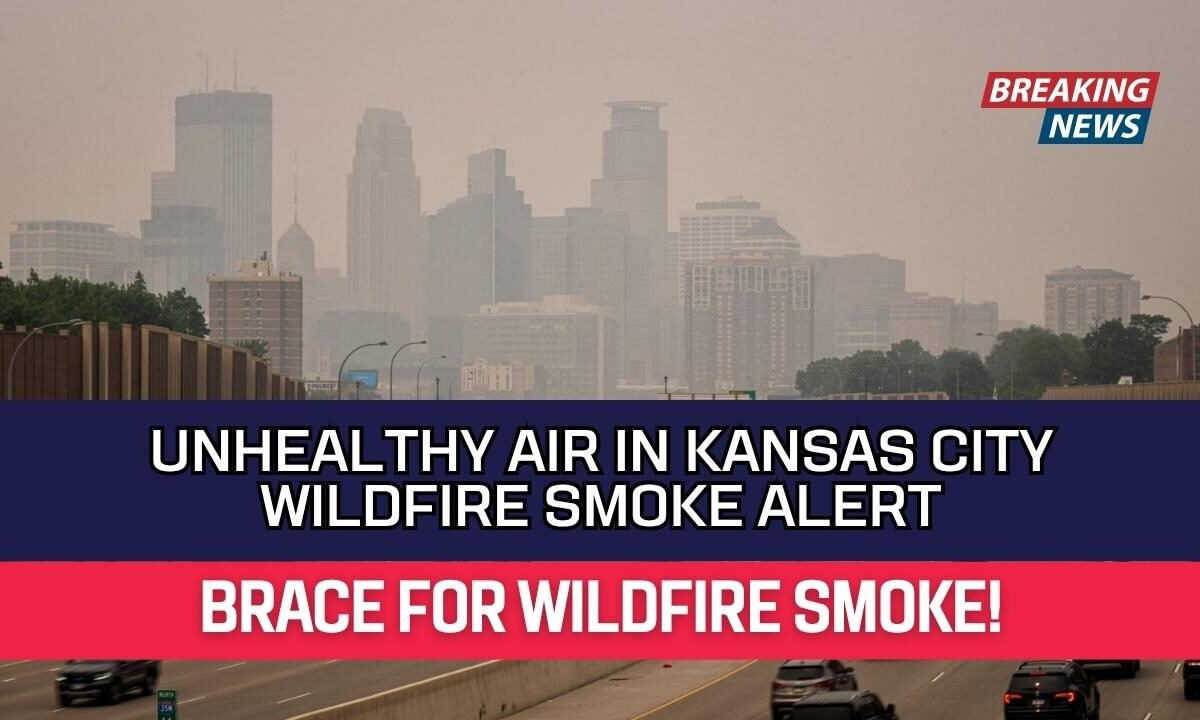Kansas City, along with many areas across the metro, is currently facing poor air quality due to wildfire smoke. The Kansas Department of Health and Environment (KDHE) has confirmed that winds are carrying Canadian wildfire smoke into the state, particularly affecting central and eastern Kansas.
The situation has made the air quality in Kansas City – both in Missouri and Kansas – classified as “unhealthy.”
Current Air Quality in Kansas City
As of 9 a.m. Friday, the air quality in Kansas City has been listed as “unhealthy.” The AirNow.gov website also reflects this status across the metro area. This follows an air quality alert issued by the National Weather Service on Thursday morning. Unhealthy air quality can severely affect health, especially for people with heart or lung disease, older adults, and children and teens. These groups are most vulnerable to the effects of poor air quality and should take extra precautions to avoid exposure.
Health Risks and Vulnerable Groups
Exposure to wildfire smoke can lead to various health issues, particularly for those with existing health conditions. Individuals with respiratory problems or cardiovascular issues may experience worsened symptoms. This includes difficulty in breathing, chest pain, or tightness, as well as shortness of breath and fatigue. Even healthy individuals can experience irritation in the eyes, throat, and lungs when exposed to unhealthy air quality for prolonged periods.
What to Do During Unhealthy Air Quality
If you live in or around Kansas City, it’s important to take steps to protect yourself during this hazardous air quality. The KDHE has shared several guidelines to help people manage the situation:
- Limit strenuous outdoor activity: Healthy individuals should avoid intense outdoor exercise while the air quality is poor.
- Stay indoors: Vulnerable individuals, including people with pre-existing heart or lung conditions, children, and older adults, should stay inside as much as possible.
- Close doors and windows: Keeping doors and windows closed will help prevent polluted outdoor air from entering your home. If you have an air conditioner with a filter, use it to keep indoor air clean.
- Stay hydrated: Drink plenty of water to help your body cope with the dry and smoky air.
- Seek medical help if needed: If you begin experiencing symptoms like chest pain, shortness of breath, or severe fatigue, contact your healthcare provider immediately.
Outlook for the Next Few Days
According to KDHE, these unhealthy air quality conditions are likely to continue throughout Friday and Saturday. The Air Quality Index (AQI) is expected to range from moderate to unhealthy during this time. This means that people in affected areas should stay vigilant and follow safety tips to minimize their exposure to harmful smoke.
For real-time updates on air quality in your area, you can check the AirNow.gov website for the most accurate information.
The presence of wildfire smoke in the atmosphere has led to unhealthy air quality in Kansas City. People, especially those with underlying health issues, should take precautions to protect themselves during this time.
By following guidelines provided by health authorities, individuals can reduce their exposure to the harmful effects of wildfire smoke. Staying indoors, limiting outdoor activities, and ensuring your living spaces have clean air are key steps to safeguarding your health during these poor air quality conditions.




